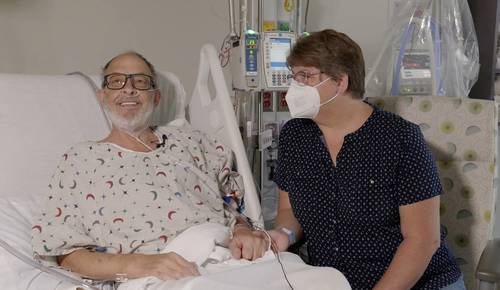Madrid. Researchers from the University of Maryland School of Medicine (Umsom) in the United States published yesterday in the journal Nature Medicine an extensive analysis on the second patient in the world to receive a genetically modified pig organ in 2023.
Lawrence Faucette, 58, received a pig heart at the University of Maryland Medical Center in 2023 to treat his end-stage heart failure. He lived 40 days before giving up any further treatment after the transplant began to fail due to rejection.
The report documents the experience of Faucette, the world’s second recipient of a heart xenotransplant. The article records the first signs of rejection in the first biopsy performed about two weeks after the intervention. In addition, it provides lessons learned and possible new avenues for advancement as specialized surgeons prepare for upcoming clinical trials in the years to come.
We have taken another important step forward in the search for solutions to the global shortage of donor hearts and, once again, we have verified that the porcine heart demonstrated excellent systolic and diastolic function during the first weeks after transplantation
said Bartley P. Griffith, co-author and first author of the study, who surgically placed the porcine heart in the first and second patients.
Thanks to the bravery of Mr. Faucette and his loving family, we have a clearer understanding of the modifications we can make going forward for longer-term success
Griffith added.
Faucette had end-stage heart disease and was deemed unsuitable for a traditional transplant with a human heart due to his pre-existing peripheral vascular disease and complications with internal bleeding. This surgery was the only option available to Faucette, who faced almost certain death from heart failure.
We are very humbled by our experience, not only for what we have learned, but also for having witnessed the strength and grace of our two patients and their families.
said Muhammad M. Mohiuddin, co-author of the study, professor of surgery and scientific director of the Umsom Cardiac Xenotransplantation Program.
More research is needed
The study authors determined that this case underscores the need for further research to overcome challenges such as antibody-mediated rejection.
Despite selecting a patient with a low level of pre-existing anti-pig antibodies, the transplant team detected an increase in these, which caused damage to the heart and ultimately led to implant failure.
It is possible that future transplants may require more aggressive depletion and suppression of these antibodies. These investigations delved into the influence of other immune-mediated mechanisms on graft failure.
Despite setbacks related to immunological rejection within a few weeks, xenotransplants and living organ donation remain the most viable way to move towards sustainable organ availability that meets the needs of our aging populations
said Mark T. Gladwin, vice president for Medical Affairs at the University of Maryland.
Without a doubt we faced similar challenges in the beginnings of solid organ transplantation. Our physicians continue to work to better understand how to prevent porcine organ rejection despite aggressive immunosuppression and satisfactory early surgical and hemodynamic outcomes.
Gladwin concluded.
